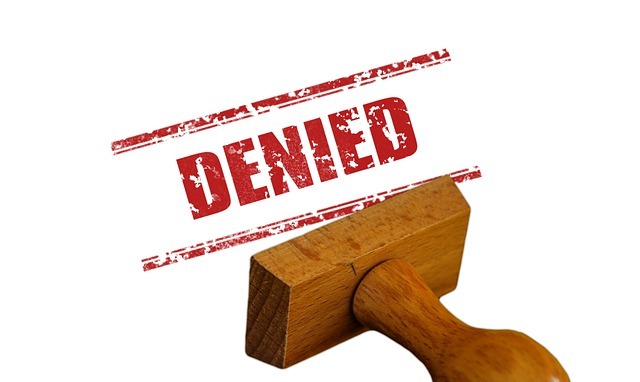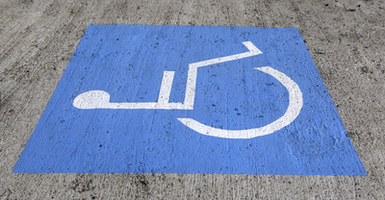
Handling Rejections and Appeals for Disabled Parking Permits
Introduction
Navigating the process of obtaining a disabled parking permit can be daunting, especially when faced with rejection. Whether you're applying for the first time or seeking renewal, understanding the appeals process is crucial. This comprehensive guide aims to provide detailed insights into handling rejections and appeals for disabled parking permits, ensuring that applicants are well-equipped to advocate for their needs.
Understanding Disabled Parking Permits
What is a Disabled Parking Permit?
A disabled parking permit, often referred to as a handicap placard or disabled badge, allows individuals with disabilities to park in designated spaces closer to building entrances, enhancing accessibility. These permits are vital for those with mobility issues, chronic illnesses, or severe disabilities that impede their ability to walk long distances.
Who Qualifies for a Disabled Parking Permit?
Qualifications for a disabled parking permit vary by jurisdiction but generally include individuals with:
- Limited mobility due to severe physical disabilities
- Chronic heart or lung conditions
- Severe neurological impairments
- Vision impairments
- Temporary disabilities such as broken limbs
Common Reasons for Rejection
Incomplete or Incorrect Applications
One of the most common reasons for rejection is submitting an incomplete or incorrect application. This includes missing information, errors in personal details, or incomplete medical documentation.
Insufficient Medical Evidence
Another frequent reason for denial is insufficient medical evidence. Applicants must provide detailed medical documentation supporting their need for a disabled parking permit. General statements without specific details often lead to rejections.
Non-Qualifying Medical Conditions
Certain medical conditions might not meet the criteria set by the issuing authority. Understanding the specific qualifications and ensuring your condition aligns with them is essential.
Expired or Unverified Medical Certification
Medical certifications that are expired or not verified by a licensed healthcare professional can also result in denial. It's crucial to ensure all medical documents are up-to-date and properly authenticated.
Steps to Take After a Rejection
Review the Rejection Letter
Upon receiving a rejection, the first step is to carefully review the rejection letter. This document will provide specific reasons for the denial, allowing you to address these issues directly in your appeal.
Gather Additional Documentation
If the rejection was due to insufficient medical evidence or incomplete application, gather additional documentation. This might include more detailed medical records, updated certifications, or additional statements from healthcare providers.
Correct and Resubmit Your Application
Correct any errors or omissions identified in your original application and resubmit it. Ensure all required fields are completed accurately and all necessary documents are included.
The Appeals Process
Understanding Your Rights
Understanding your rights during the appeals process is crucial. Most jurisdictions have specific guidelines and timelines for appealing a denied disabled parking permit application. Familiarize yourself with these to ensure your appeal is timely and compliant.
Preparing Your Appeal
Preparation is key to a successful appeal. This involves:
- Collecting comprehensive medical documentation
- Ensuring all forms are completed accurately
- Writing a detailed appeal letter addressing the reasons for the initial rejection
Submitting Your Appeal
Submit your appeal according to the guidelines provided by the issuing authority. This might involve mailing documents, submitting online, or attending an in-person hearing.
Follow-Up and Persistence
After submitting your appeal, follow up regularly to track its progress. Persistence can be crucial in ensuring your case receives the attention it deserves.
Working with Medical Professionals
Consulting Your Doctor
Your healthcare provider plays a critical role in the application and appeals process. Consult your doctor to ensure all medical documentation accurately reflects your condition and need for a disabled parking permit.
Seeking a Second Opinion
If your application was denied due to insufficient medical evidence, consider seeking a second opinion. Another healthcare provider might offer additional insights or documentation that can strengthen your appeal.
Get a Consult with HandicapMD
If your doctor has denied your disabled parking permit application, consider consulting with HandicapMD. This telehealth service specializes in reviewing medical records and determining eligibility for disabled parking permits according to ADA guidelines. Their expertise can be invaluable in navigating the appeals process and ensuring all necessary documentation is provided.
Legal Assistance and Advocacy
When to Seek Legal Help
In some cases, legal assistance might be necessary. This is particularly true if you believe your application was wrongfully denied or if you're facing significant barriers in the appeals process.
Disability Rights Organizations
Numerous disability rights organizations offer support and advocacy for individuals facing difficulties in obtaining disabled parking permits. These organizations can provide resources, guidance, and legal assistance if needed.
Conclusion
Handling rejections and appeals for disabled parking permits requires a thorough understanding of the process and persistence. By carefully reviewing rejection letters, gathering comprehensive documentation, and following the proper appeal procedures, applicants can successfully navigate this challenging process. Consulting with specialists like HandicapMD and seeking legal assistance when necessary can further enhance your chances of obtaining the necessary permit. Remember, advocacy and persistence are key in ensuring your rights and needs are recognized and met.
.png)





